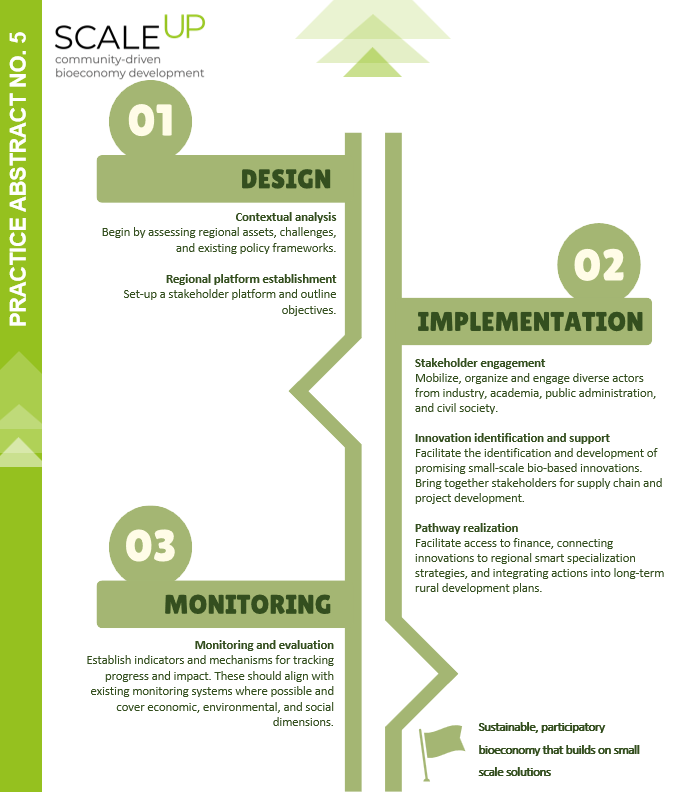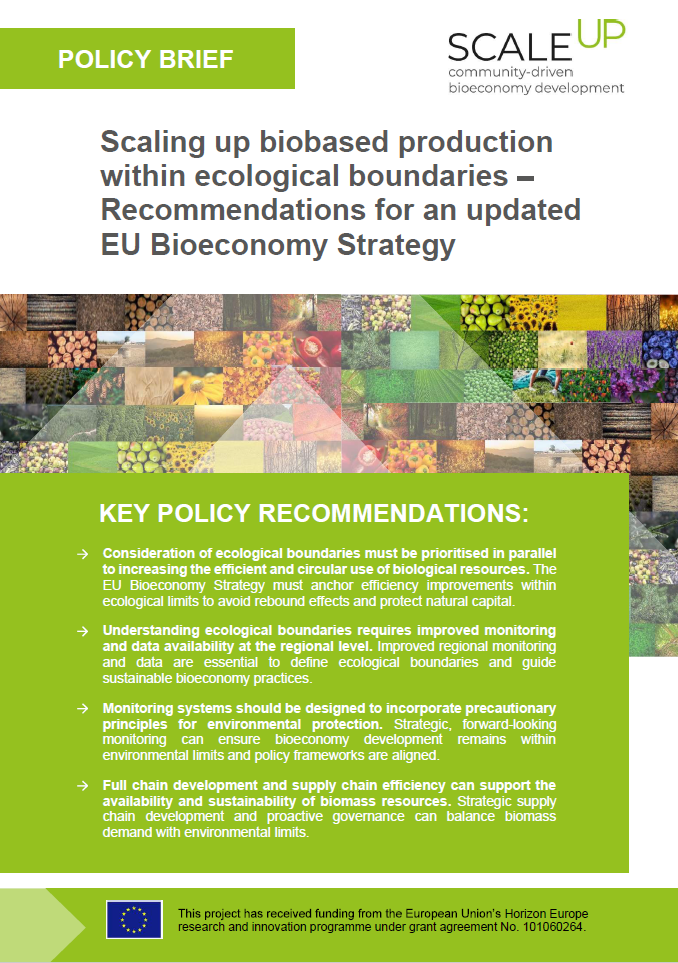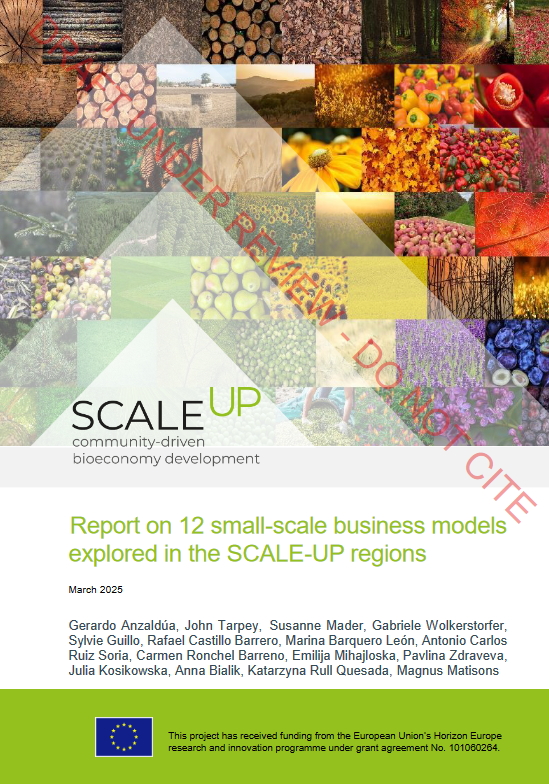Photo: canva.com
How Should the EU Bioeconomy Strategy and its Upcoming Review Address Challenges Arising from Bioeconomy-related Trade-offs?
- Event
- Date
-
- Location
- online
- Speaker
On 12 December 2024, Work Stream 7 of the SCALE-UP training programme convened its final session. Seventy-two bioeconomy stakeholders from SCALE-UP's focal regions and beyond gathered to review key outcomes and identify priorities for the EU Bioeconomy Strategy update. Zoritza Kiresiewa (Ecologic Institute) opened the session by emphasizing two objectives: first, to examine critical topics – such as regulatory alignment, producer integration, and resource competition – that will shape the future EU Bioeconomy Strategy; and second, to reflect on the cumulative insights generated by SCALE-UP over the past months and their relevance for policy design.
Key Presentations and Practical Insights
- Laura Liepina (DG Agriculture & Rural Development, European Commission) kicked off with an overview of the EU Bioeconomy Strategy’s objectives and timeline for the upcoming review. She underscored the bioeconomy’s potential to generate income, reduce input costs, and create jobs – especially through sustainable biofertilizers and biopesticides – while highlighting challenges like limited producer integration into value chains and regulatory barriers.
- Next, Maria Teresa Borzacchiello (EC Joint Research Centre, Knowledge Centre for Bioeconomy) addressed "Trade-offs in the bioeconomy," illustrating how policy-relevant research – including robust indicator sets and adaptive monitoring systems – can inform decision-making. She stressed that the EU Bioeconomy Monitoring System and the JRC's knowledge base are essential for adaptive governance.
- Jens Günther (German Environment Agency, UBA) then focused on "Relevant aspects for sustainable bioeconomy policies," discussing the imperative to balance limited sustainable biomass potential against growing demand and conflicting land uses. He advocated cascading biomass use, reduced raw material needs, and the elimination of bioenergy from primary biomass to align climate and biodiversity objectives.
During Q&A, participants queried how the Strategy update will align with the Circular Economy Act, Biotech Act, and Clean Industrial Act; how youth perspectives will be incorporated (via the EU Youth Bioeconomy Ambassador initiative); and how the 14 existing Bioeconomy Strategy actions are progressing (all actions are reportedly on track).
SCALE-UP Outcomes and Policy Relevance
After a coffee break, Info Ball (WIP) steered a plenary discussion highlighting SCALE-UP's three main action areas:
- scaling up biobased sectors and unlocking investments,
- deploying local bioeconomies rapidly across Europe, and
- understanding ecological boundaries.
Regional partners then presented good practice examples: the BioFuel Region in Northern Sweden (a stakeholder network fostering regional collaboration), BIOHUBCAT in Catalonia (a central hub linking enterprises to circular bioeconomy resources), and the Terres de Sources programme in Brittany (promoting sustainable water solutions through hemp cultivation). The discussion concluded that successful regional bioeconomy initiatives often hinge on "champions" with strong networks and mobilization skills. Participants agreed that aligning available frameworks and leveraging regional opportunities – combined with multi-stakeholder cooperation – are essential to ensuring the EU Bioeconomy Strategy's objectives translate into sustainable, inclusive, and resource-efficient regional bioeconomies.







